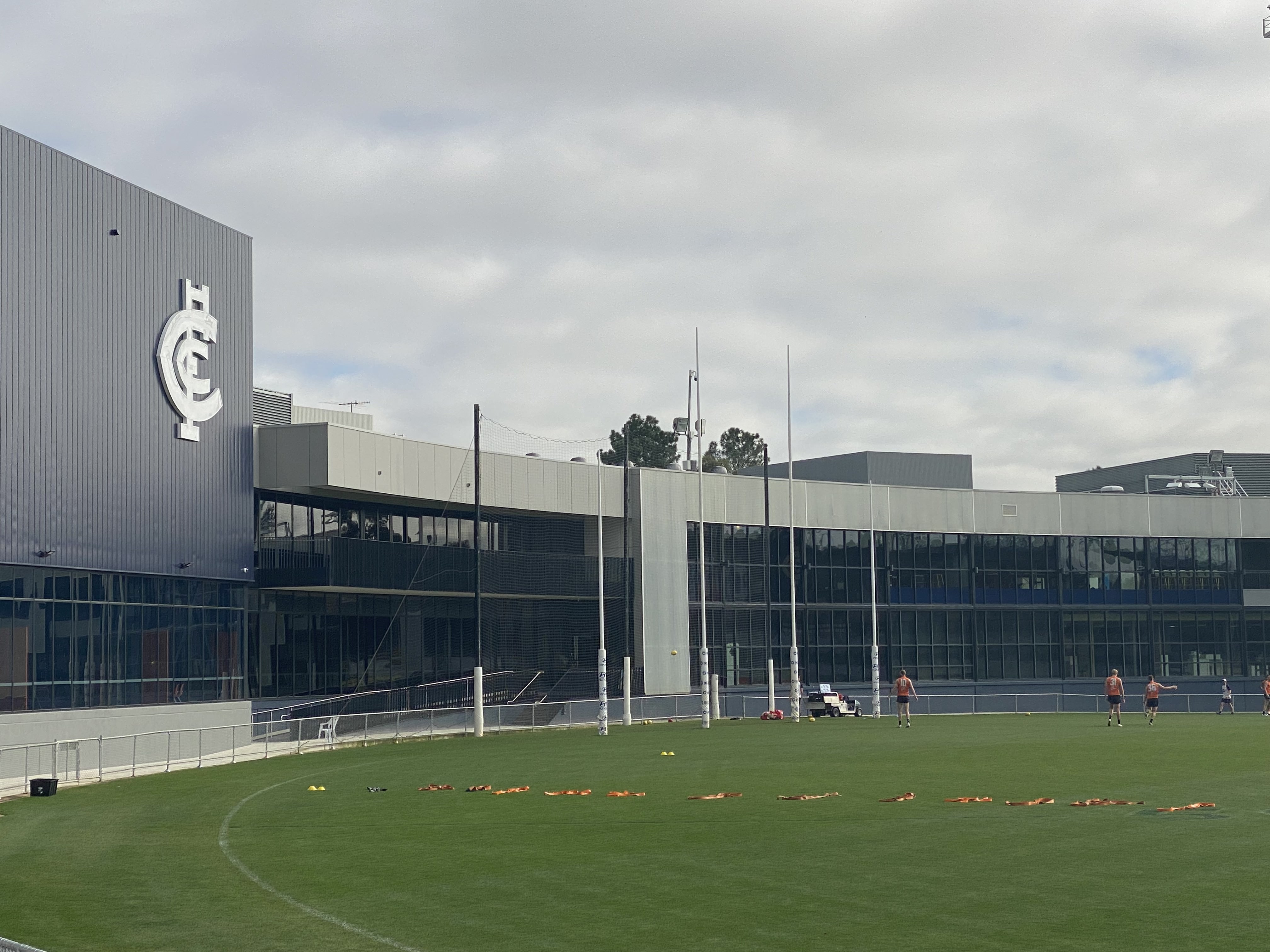AFL player Elijah Hollands will face court on a charge of possession of an illicit substance.
The Carlton midfielder was traded from Gold Coast on Wednesday after three seasons with the Suns. Carlton said they were aware that Hollands was served with a notice to appear in court prior to trade negotiations last month.
“An informed decision was then made to proceed with the recruitment and the Club will now provide the necessary support to Hollands,” the club said.
The AFL’s Integrity Unit was notified of the charge and will conduct their own investigation into the matter.
“All players receive extensive education on the AFL’s Illicit Drugs Policy and are fully aware of the behaviours and standards expected of them as AFL players,” the Suns said in a statement.
Elijah is set to start pre-season in November as scheduled and will join brother Ollie at the Blues.
Both clubs said they will not make any further comments at this stage.
It comes as Melbourne player Joel Smith has been suspended by the AFL, effective immediately, after testing positive for cocaine at the end of the season.
The key forward returned a positive anti-doping result after the win against Hawthorn in round 23 and went onto play the last round and the finals series.
Sport Integrity Australia (SIA) were notified last week of a potential violation of the Australian football anti-doping code. The sample found the presence of cocaine and its metabolite benzoylecgonine.
Cocaine is listed as a substance of abuse by the World Anti-Doping Authority (WADA), rather than a specified substance. Four years is the maximum penalty for intentional use of a non-specified substance under the AFL’s Anti-Doping Code.
WADA updated their policies in 2021 and it states that an athlete who tested positive for marijuana or cocaine will face a three month suspension if they can prove “the substance was used out of competition and that its use was unrelated to sporting performance.”
According to the AFL’s Anti-Doping Code, an athlete who tests positive to an illicit drug will be given a two year ban if it’s in competition, but three months if out of competition.
Smith will need to prove his case in a hearing at the AFL’s anti-doping tribunal which could have his suspension reduced from three months to one if he agrees to undergo substance of abuse treatment.
Breaches of the AFL’s Anti-Doping Code will result in an automatic ban.
“Under the AFL’s Anti-Doping Code, any player who tests positive to a substance of abuse, and can prove that their use of the substance was both out of competition and unrelated to sport performance, faces a three-month ban.”
Melbourne will support Smith during his suspension, but he is not allowed to train or play with the club while his suspension is in place.
“The club will continue to support Joel throughout the process and ensure our supporters are informed further when we are authorised to do so,” the statement said.
The AFL Players’ Association (AFLPA) said it was “inappropriate to speculate on details of the case or pre-empt the outcome”, but they will also support Smith and Melbourne.
Photo: Provided by author.







